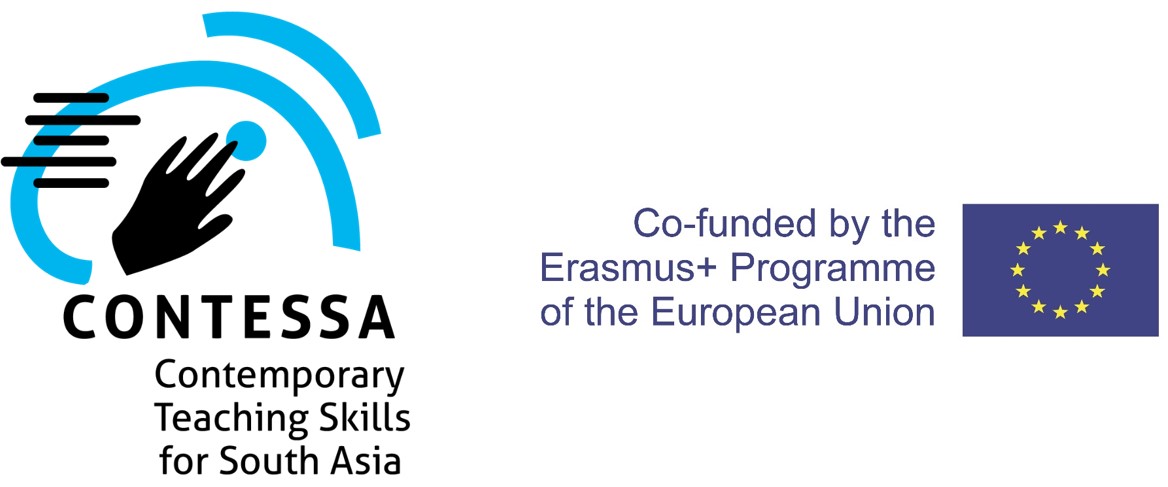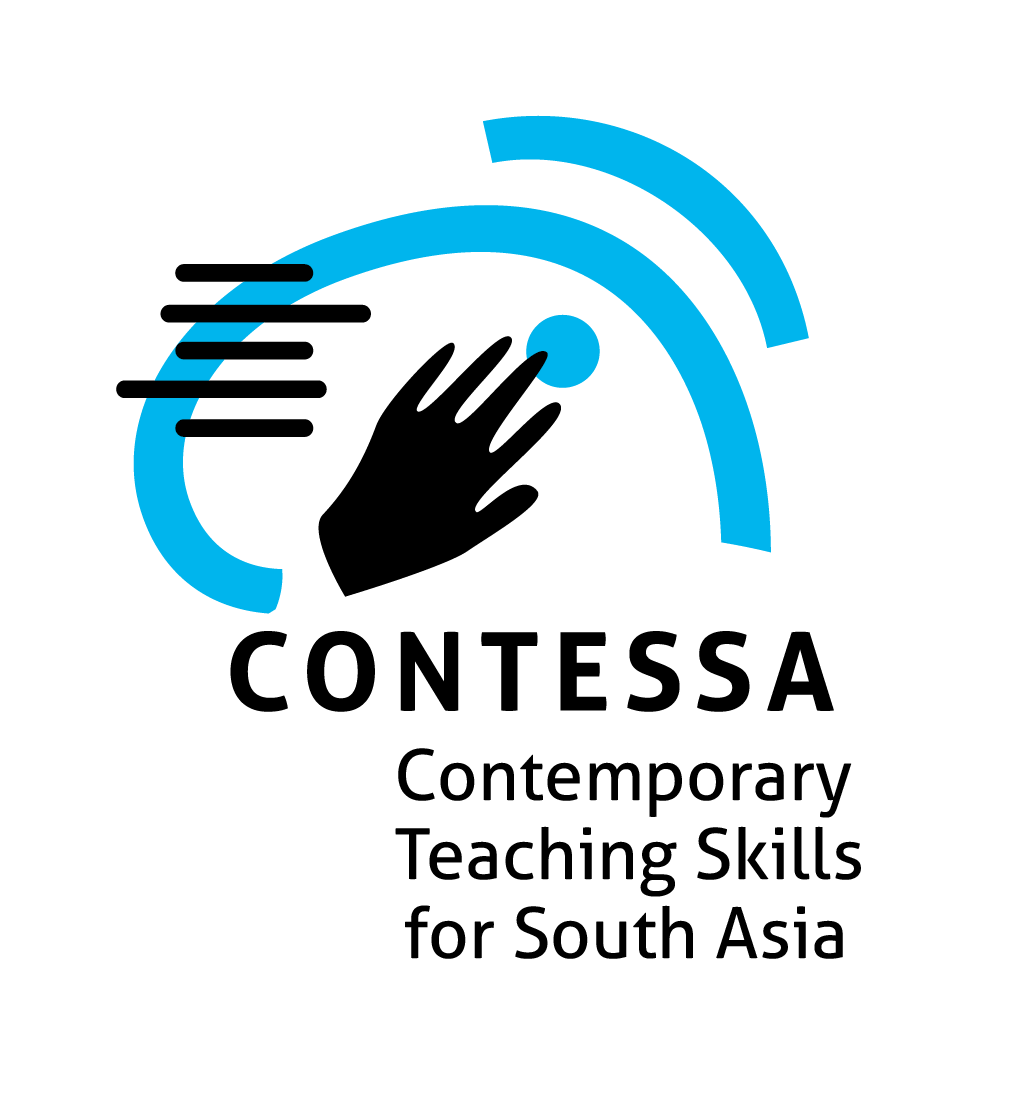Environmental Project Analysis Cambodia (May 2019)
This report is part of work package 1: activity 1.4 and contributes to the output activities labeled Contents and Tasks for Online Modules and Train-the-Trainer Concept on the LFM. The report provides an analysis of the project environment in Cambodia including general country information, an overview of relevant structures of primary education and teacher education in primary education as well as a stakeholder analysis. The report is based on desk research, information provided by the project partners in Cambodia (PUC and UC) and findings from focus group interviews with 29 participants in Cambodia in March 2019 with the target groups (in-service teachers, trainee teachers and teacher trainers).
Training Needs Analysis (June 2019)
This report is part of work package 2: activity 2.1 and contributes to the output activities labeled Train-the-Trainer Concept and Contents and Tasks for Online Modules on the LFM. It aims at identifying the training needs of teacher trainers, in-service teachers and pre-service teachers and at clarifying the target groups’ understanding of contemporary teaching skills in Cambodia and Sri Lanka. The report is based on focus group interviews with the above-mentioned target groups that were conducted in Cambodia (29 participants) and Sri Lanka (42 participants) in March 2019. In addition, in-depth information on teacher training structures and needs in both countries was retrieved from discussions with experts, i.e. local project partners who work as professionals in the field of education and teacher training in Cambodia (3 persons) and Sri Lanka (5 persons). These discussions aimed at an in-depth understanding of the project environment and a situational analysis of teacher training and teaching in primary school in both countries.
Train-the-Trainer Needs Analysis (November 2019)
This report is part of work package 2: activity 2.1 and contributes to the output activity labeled Train-the-Trainer Concept on the LFM. It outlines the aims of the focus groups, online survey and interviews for the TTT program.
Validation of the Train-the-Trainer Program (April 2020)
This report is part of work package 2: activity 2.1 and contributes to the output activity labeled Train-the-Trainer Concept on the LFM. The report summarizes the findings from interviews with experts responsible for teacher education at governmental/provincial levels (representatives of the National Ministries of Education and of the National Institutes of Education) and at academic levels (researchers involved with teacher education) in Cambodia and Sri Lanka.
Structure and Elements of Teacher Training (June 2020)
This report is part of work package 2: activity 2.3 and contributes to the output activity labeled Train-the-Trainer Concept on the LFM.
Module Description and Pedagogical Approach (October 2019)
This report is part of work package 3: activity 3.1 and contributes to the output activity labeled Contents and Tasks for Online Modules E-didactic Concept on the LFM. It outlines the first concept for the CONTESSA course and each individual module within the course.
Training Needs Analysis Focused on ICT/ET in Cambodian Education (October 2019
This report is part of work package 3: activity 3.3 and contributes to the output activities labeled E-didactic Concept and Installation of a Learning Platform on the LFM. The report is based on desk research, information provided by the project partners in Cambodia (PUC and UC) and findings from focus group interviews with 29 participants in Cambodia in March 2019 with the target groups (in-service teachers, trainee teachers and teacher trainers). The goal of the report is to outline the current ICT situation, the expectations of the partners and the ICT opportunities for CONTESSA.
Media Concept for Online Modules (March 2020)
This report is part of work package 3: activity 3.3 and contributes to the output activities labeled E-didactic Concept and Installation of a Learning Platform on the LFM. The report outlines a media concept for CONTESSA including an overview of all selected course elements provided by the OLAT/OPAL.
Establishing a Didactic Concept for TTT (August 2020)
This report is part of work package 2: activity 2.2 and contributes to the output activity labeled Train-the-Trainer Concept on the LFM.
Validation of the Train-the-Trainer Program (April 2020)
This report is part of work package 2: activity 2.1 and contributes to the output activity labeled Train-the-Trainer Concept on the LFM. The report summarizes the findings from interviews with experts responsible for teacher education at governmental/provincial levels (representatives of the National Ministries of Education and of the National Institutes of Education) and at academic levels (researchers involved with teacher education) in Cambodia and Sri Lanka.
Environmental Project Analysis Sri Lanka (October 2019)
This report is part of work package 1: activity 1.4 and contributes to the output activities labeled Contents and Tasks for Online Modules and Train-the-Trainer Concept on the LFM. The report provides an analysis of the project environment in Sri Lanka including general country information, an overview of relevant structures of primary education and teacher education in primary education as well as a stakeholder analysis. The report is based on desk research, information provided by the project partners in Sri Lanka (OUSL and UoC) and findings from focus group interviews with 42 participants in Sri Lanka in March 2019 with the target groups (in-service teachers, trainee teachers and teacher trainers).
Module Description and Pedagogical Approach (October 2019)
This report is part of work package 3: activity 3.1 and contributes to the output activity labeled Contents and Tasks for Online Modules E-didactic Concept on the LFM. It outlines the first concept for the CONTESSA course and each individual module within the course.
Train-the-Trainer Survey Needs (April 2020)
This report is part of work package 2: activity 2.1 and contributes to the output activity labeled Train-the-Trainer Concept on the LFM. It outlines the aims of the focus groups, online survey and interviews for the TTT program.
Validation of the Train-the-Trainer Program (April 2020)
This report is part of work package 2: activity 2.1 and contributes to the output activity labeled Train-the-Trainer Concept on the LFM. The report summarizes the findings from interviews with experts responsible for teacher education at governmental/provincial levels (representatives of the National Ministries of Education and of the National Institutes of Education) and at academic levels (researchers involved with teacher education) in Cambodia and Sri Lanka.
Establishing a Didactic Concept for TTT (August 2020)
This report is part of work package 2: activity 2.2 and contributes to the output activity labeled Train-the-Trainer Concept on the LFM.
Report on EduTech Implementation in PUC (January 2020)
This report is part of work package 3: activity 3.3 and contributes to the output activities labeled E-didactic Concept and Installation of a Learning Platform on the LFM. The report is based on qualitative and structural data collected in a focus group discussion with representatives from PUC. The focus groups were conducted in an informal, participatory, and interactive environment with the aim of exploring the needs and issues surrounding the context of the study. Questions asked during these focus group meetings included inquiring about the professors’, lecturers’ and students’ experience in using web-based technologies for teaching and learning purposes, what they thought were the challenges in their teaching and learning, and how the use of technology could help address these challenges.
Report on EduTech Implementation in UC (January 2020)
This report is part of work package 3: activity 3.3 and contributes to the output activities labeled E-didactic Concept and Installation of a Learning Platform on the LFM. The report is based on qualitative and structural data collected in a focus group discussion with representatives from UC. The focus groups were conducted in an informal, participatory, and interactive environment with the aim of exploring the needs and issues surrounding the context of the study. Questions asked during these focus group meetings included inquiring about the professors’, lecturers’ and students’ experience in using web-based technologies for teaching and learning purposes, what they thought were the challenges in their teaching and learning, and how the use of technology could help address these challenges.
Report on EduTech Implementation in UoC (January 2020)
This report is part of work package 3: activity 3.3 and contributes to the output activities labeled E-didactic Concept and Installation of a Learning Platform on the LFM. The report is based on qualitative and structural data collected in a focus group discussion with representatives from UoC. The focus groups were conducted in an informal, participatory, and interactive environment with the aim of exploring the needs and issues surrounding the context of the study. Questions asked during these focus group meetings included inquiring about the professors’, lecturers’ and students’ experience in using web-based technologies for teaching and learning purposes, what they thought were the challenges in their teaching and learning, and how the use of technology could help address these challenges.
Report on EduTech Implementation in OUSL (January 2020)
This report is part of work package 3: activity 3.3 and contributes to the output activities labeled E-didactic Concept and Installation of a Learning Platform on the LFM. The report is based on qualitative and structural data collected in a focus group discussion with representatives from OUSL. The focus groups were conducted in an informal, participatory, and interactive environment with the aim of exploring the needs and issues surrounding the context of the study. Questions asked during these focus group meetings included inquiring about the professors’, lecturers’ and students’ experience in using web-based technologies for teaching and learning purposes, what they thought were the challenges in their teaching and learning, and how the use of technology could help address these challenges.
First Internal Evaluation Report (November 2019)
This report is part of work package 4: activity 4.1 and contributes to the output activity labeled Periodic Internal Evaluations on the LFM. This report provides an overview of the results of the first internal evaluation developed in August/September 2019 and conducted in October/November 2019. It was based on an online questionnaire with six indicator groups and 40 items.

